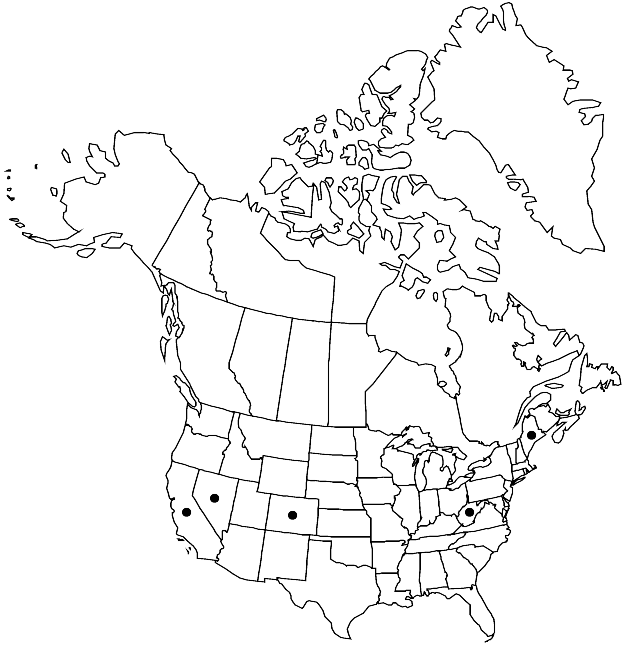Imbribryum mildeanum
Phytologia 89: 112. 2007.
Plants small to medium-sized, bright green, stramineous with age. Stems 0.5–2 (–3) cm, not julaceous, without metallic sheen, sometimes densely radiculose. Leaves rigid, loosely imbricate, green, ovatelanceolate, weakly concave or flat, 1–3 mm; base not decurrent; margins revolute proximally, plane distally, entire to finely serrulate distally, limbidium absent; apex acute to acuminate, not cucullate; costa brown, sometimes red proximally, short-excurrent, awn slender, sometimes denticulate; basal row of pigmented cells absent; proximal laminal cells abruptly quadrate, with scattered short-rectangular cells, 1–2: 1; medial and distal cells elongate-hexagonal, (30–) 40–60 × (8–) 10–12 µm, 4–6: 1, walls thin to firm, parallel to costa. Specialized asexual reproduction absent. Sporophytes unknown.
Habitat: Damp soil, along streams, wetlands
Elevation: low to high elevations (100-3500 m)
Distribution

Calif., Colo., Maine, Nev., W.Va., w Europe, Asia (Turkey), n Africa, Atlantic Islands (Azores), Atlantic Islands (Canary Islands)
Discussion
Imbribryum mildeanum is a small, inconspicuous boreal-montane species that has been found in Maine and subalpine-alpine areas in the West. This species has generally not been recognized by North America workers, but, following the sense of European authors, the species can be confirmed from several boreal to montane sites; it is probably more widespread than the few records indicate.
Selected References
None.
Lower Taxa
"narrower" is not a number."narrow" is not a number.